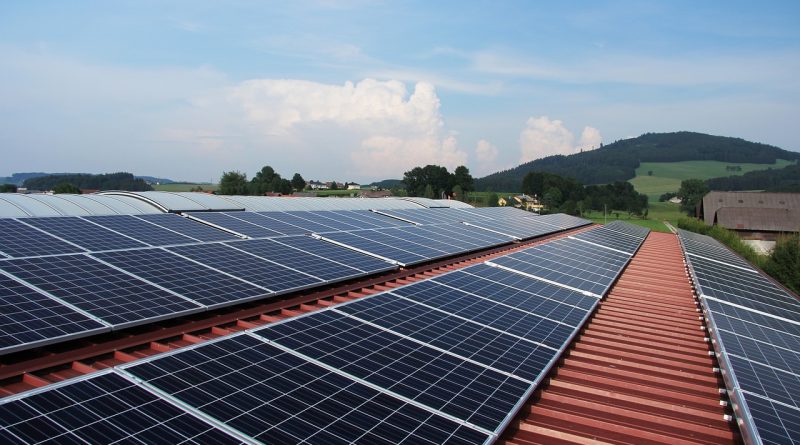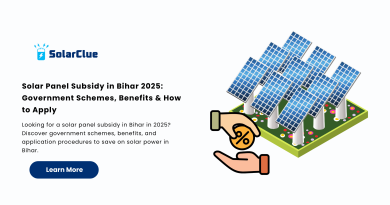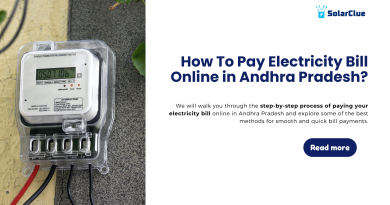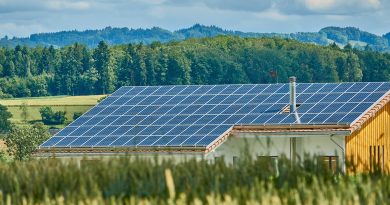Home Solar Power Systems
The growing concern over environmental degradation, coupled with the increasing prices of electricity, has led many homeowners to explore alternative, renewable energy sources. One such solution gaining popularity is solar power systems for homes. By harnessing the abundant energy from the sun, homeowners can reduce their reliance on traditional power grids and take a significant step towards a sustainable future. In this blog, we will delve into the world of solar power systems for homes, exploring their benefits, installation process, cost considerations, and maintenance requirements.
Table of Contents
Benefits of Solar Power System for Home
Solar power systems offer numerous advantages to homeowners, both from an environmental and financial standpoint. Firstly, harnessing solar energy significantly reduces reliance on fossil fuels, which are a major contributor to greenhouse gas emissions and climate change. Transitioning to solar power helps decrease carbon footprints and preserves the environment for future generations.
Financially, solar power systems provide long-term savings on electricity bills. Although the upfront costs of installation may appear daunting, considering factors such as tax incentives, subsidies, and the ever-decreasing cost of solar panels, the return on investment can be substantial. In fact, many homeowners have reported 50-100% reduction in their energy bills after installing solar power systems.
Furthermore, solar power systems also increase property value. Studies have shown that homes equipped with solar panels tend to sell faster and at higher prices compared to similar homes without solar installations. This added value appeals to potential buyers looking to reduce their carbon footprint and save on utility costs.
Installation Process
While the idea of installing a solar power system may seem intimidating, it is a relatively straightforward process that can be carried out by professionals or even some skilled DIY enthusiasts. Here are the fundamental steps involved:
1. Site assessment: To determine if your home is suitable for solar installation, factors such as roof angle, orientation, access to sunlight, and shading need to be evaluated. Ideally, roofs with south-facing exposure and minimal shading are perfect candidates.
2. Design and permits: Once the site assessment is complete, a solar design professional will create the system layout, taking into account your energy consumption needs, available roof space, and local regulations. Permit applications will be submitted to obtain the necessary approvals from your local authorities.
3. Equipment installation: This step involves mounting solar panels on your roof or ground-mounted systems. The panels are securely fixed to aluminum racks, ensuring optimal exposure to sunlight. In addition, an inverter, charge controller, and metering equipment will be installed to convert solar energy into usable electricity.
4. Electrical connections: A licensed electrician will connect the solar power system to your home’s electrical panel and wiring, ensuring it seamlessly integrates with your existing electrical infrastructure.
5. Inspection and activation: After the installation is complete, a professional inspection will be carried out to ensure compliance with safety standards. Once approved, you can activate your solar power system and start generating clean, renewable energy.
Cost Considerations
While the benefits of solar power systems are evident, it is essential to evaluate the associated costs before making the investment. Several factors contribute to the overall cost, including the size of the system, equipment quality, installation complexity, and location-specific variables.
As a general guideline, the average cost of a fully installed solar power system for a typical home ranges between $10,000 and $20,000. However, it is crucial to keep in mind that this cost can be significantly reduced by taking advantage of available financial incentives such as federal tax credits or local subsidies. Additionally, the payback period for solar power systems typically ranges from 6 to 12 years, depending on various factors.
It is also advisable to obtain multiple quotes from reputable solar installation companies and carefully consider financing options, such as solar loans or lease programs, which can help eliminate the upfront costs associated with solar installations.
Maintenance Requirements
One of the most attractive aspects of solar power systems for homes is the minimal maintenance they require. Once installed, solar panels are relatively self-sufficient, with a lifespan ranging from 25 to 30 years. However, a few maintenance considerations can ensure optimal performance:
1. Regular cleaning: Periodically, removing dust, leaves, or debris from the surface of the panels can prevent any potential decrease in energy production. This can be achieved using water and a soft brush or with the assistance of professional cleaning services.
2. Inspection and monitoring: Keeping a close eye on the system’s performance is crucial. Monitoring tools, available both from the manufacturers and third-party companies, enable homeowners to track energy production, detect any malfunctions, and ensure maximum efficiency.
3. Professional inspection: It is advisable to have a professional inspection every few years to assess the overall condition of the system, including checking for loose connections, potential water damage, or any signs of wear and tear. Regular inspections can help identify and address minor issues before they escalate into major problems.
Conclusion
Empower your home with SolarClue®’s comprehensive guide on home solar power systems. Understand the components, functionality, and benefits of installing solar panels for residential energy production. Learn the art of sizing a system accurately, considering factors like energy requirements and roof space. Evaluate the feasibility of solar adoption based on roof orientation, shading, and local climate conditions. Explore types of systems and choose the most suitable one, guided by SolarClue®. Uncover the role of solar inverters and gain insights into the financial aspects, potential savings, and available incentives. Embrace the environmental benefits and contribute to a greener future while reducing your carbon footprint. SolarClue® stays ahead in technology, offering the latest features and innovations for your residential solar journey. Experience continuous support from installation to monitoring, ensuring a seamless and efficient solar experience for your home.
Frequently Asked Questions
A home solar power system harnesses solar energy to generate electricity for residential use. SolarClue® guides homeowners in understanding the components, functionality, and benefits of installing solar panels, fostering energy independence and sustainability.
SolarClue® explains the process of sizing a home solar power system, ensuring accurate determination of capacity based on energy requirements. Factors like household energy consumption, location, and roof space are considered to optimize the sizing process.
SolarClue® assists homeowners in evaluating the feasibility of a home solar power system. We address considerations like roof orientation, shading, and local climate conditions to optimize energy production and ensure a well-informed decision.
SolarClue® provides information on home solar power system types, including grid-tied, off-grid, and hybrid systems. Our platform guides users in choosing the most suitable option based on their energy needs, preferences, and grid availability.
Solar inverters play a crucial role in home solar power systems. SolarClue® educates homeowners on selecting the right inverter type for optimal energy conversion and system efficiency, ensuring maximum performance.
SolarClue® addresses the financial aspects of home solar power systems. We provide insights into costs, potential savings, and available financial incentives or financing options, making solar energy accessible to a broader audience.
SolarClue® explains the maintenance requirements of home solar power systems. We offer practical tips on preserving the efficiency and longevity of solar panels and related components, empowering homeowners to take proactive measures.
SolarClue® highlights the environmental benefits of home solar power systems, including reduced carbon footprint and dependence on traditional energy sources. We inspire homeowners to contribute to a greener future by embracing sustainable energy solutions.
SolarClue® stays updated on advancements in home solar technology. We ensure homeowners have access to the latest features, innovations, and energy-efficient solutions for their residential solar installations, keeping them at the forefront of solar trends.
SolarClue® supports homeowners throughout their home solar power system journey. We provide assistance in installation, monitoring, and troubleshooting, ensuring a seamless and efficient solar experience from the initial decision to long-term operation.




